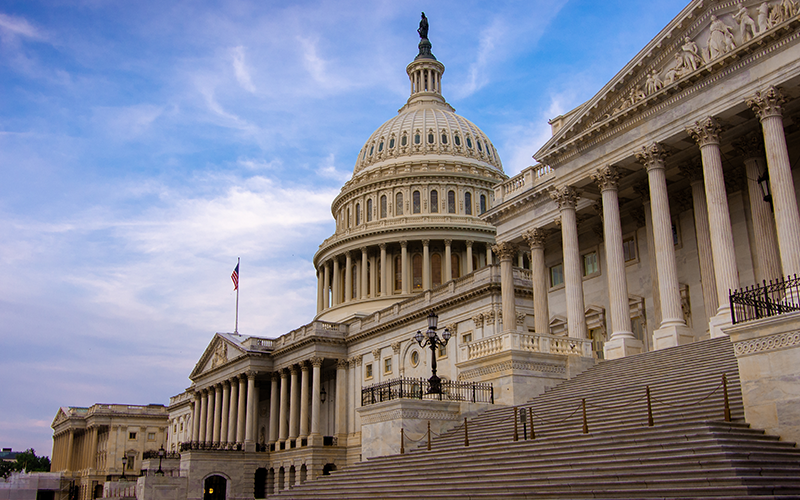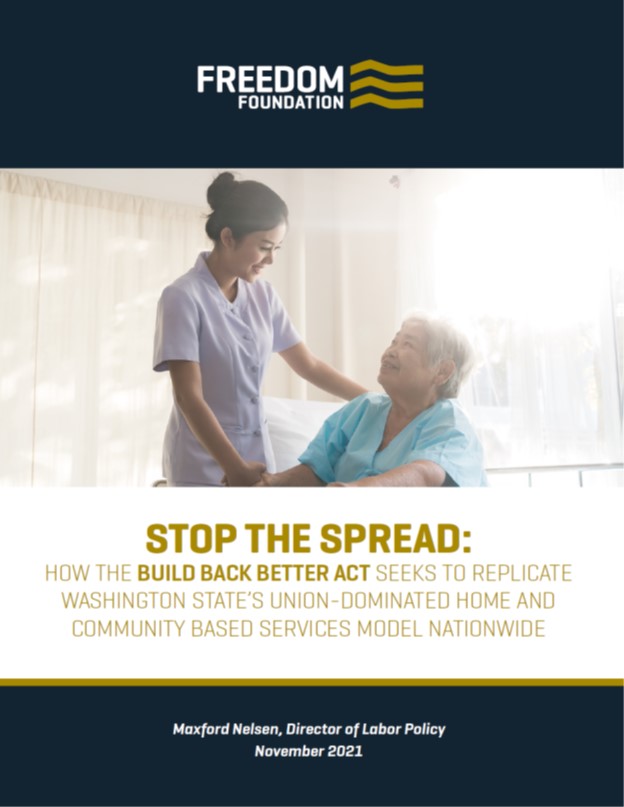Updated 11/16/2021.
Executive Summary
One of the most expensive elements of President Joe Biden’s “Build Back Better” agenda, which congressional Democrats are seeking to pass unilaterally via the budget reconciliation process, is a vast expansion of Medicaid funding for home and community-based services (HCBS) that provide in-home care to, and prevent the institutionalization of, adults with functional disabilities. Such services are provided via state-designed-and-operated programs operating within federal parameters.
While the precise increase in funding in the Build Back Better Act (BBBA), H.R. 5376, has yet to be determined amid fast-moving negotiations in Congress, the proposals released so far all offer states hundreds of billions of dollars in additional federal funds to expand their HCBS programs.
The White House has claimed the additional spending is necessary to “permanently improve Medicaid coverage for home care services for seniors and people with disabilities… The framework will improve the quality of caregiving jobs, which will, in turn, help to improve the quality of care provided to beneficiaries.”
While additional funding for HCBS may or may not be justified, the federal funds come with conditions designed to steer potentially billions of dollars in Medicaid funds to unions representing home care aides, like the Service Employees International Union (SEIU) and American Federation of State, County and Municipal Employees (AFSCME).
As a condition of receiving the additional funding, states must implement changes to their HCBS programs designed to encourage the unionization of home care aides and are incentivized to use a historically disfavored model that would allow unions to force caregivers to pay dues as a condition of employment in states lacking right-to-work protections. Further, federal grant funds are made available to go directly to union-operated training programs for home care aides.
Certain congressional supporters of the BBBA have made it clear that boosting home care unions is a goal of the bill. In a recent op-ed, Rep. Robin Kelly (D-IL), brazenly argued that the BBBA would allow “organizations like SEIU” to “advocate” for home care workers.” SEIU endorsed Kelly in 2020 and contributed thousands of dollars to her campaign.
For its part, the SEIU has claimed the BBBA will mean, “Hundreds of thousands of union jobs for home care workers.”
The structure of the legislation suggests that the architects of the BBBA look to replicate SEIU’s dominance of the home care system in Washington state nationwide, and union-sympathetic coverage of the BBBA’s HCBS provisions by prominent newspapers has repeatedly held up Washington state as an example to be emulated.
In Washington, home care aides for Medicaid clients are unionized, with dues deducted from their Medicaid payments by the state. Additionally, the state requires robust training, of questionable utility, for caregivers and pays SEIU to provide it. Finally, the state uses Medicaid funds to pay trust funds affiliated with SEIU to provide health insurance, retirement and other benefits to caregivers. These entities face little meaningful accountability and typically operate with relatively high operating costs, often paying the union for administration. Overall, nearly three percent of the payroll expenses the state incurs on behalf of HCBS caregivers wind up in union coffers.
Expanding similar arrangements nationwide could potentially increase union revenue by billions of dollars, much of which, if history is any guide, will be spent by SEIU and AFSCME on furthering their wide-ranging political and electoral goals.
Given the degree to which they stand to benefit, it comes as no surprise that unions like SEIU are spending millions of dollars on advertisements and lobbying urging passage of the BBBA.
If Congress believes additional HCBS funding is warranted, it should simply provide the funds to states with the flexibility to expand and improve such programs as they see fit. Structuring the program in such a way as to divert potentially billions of dollars in Medicaid funds to a politically influential special interest group with a track record of exploitative practices simply cannot be justified.
Read the full report:









